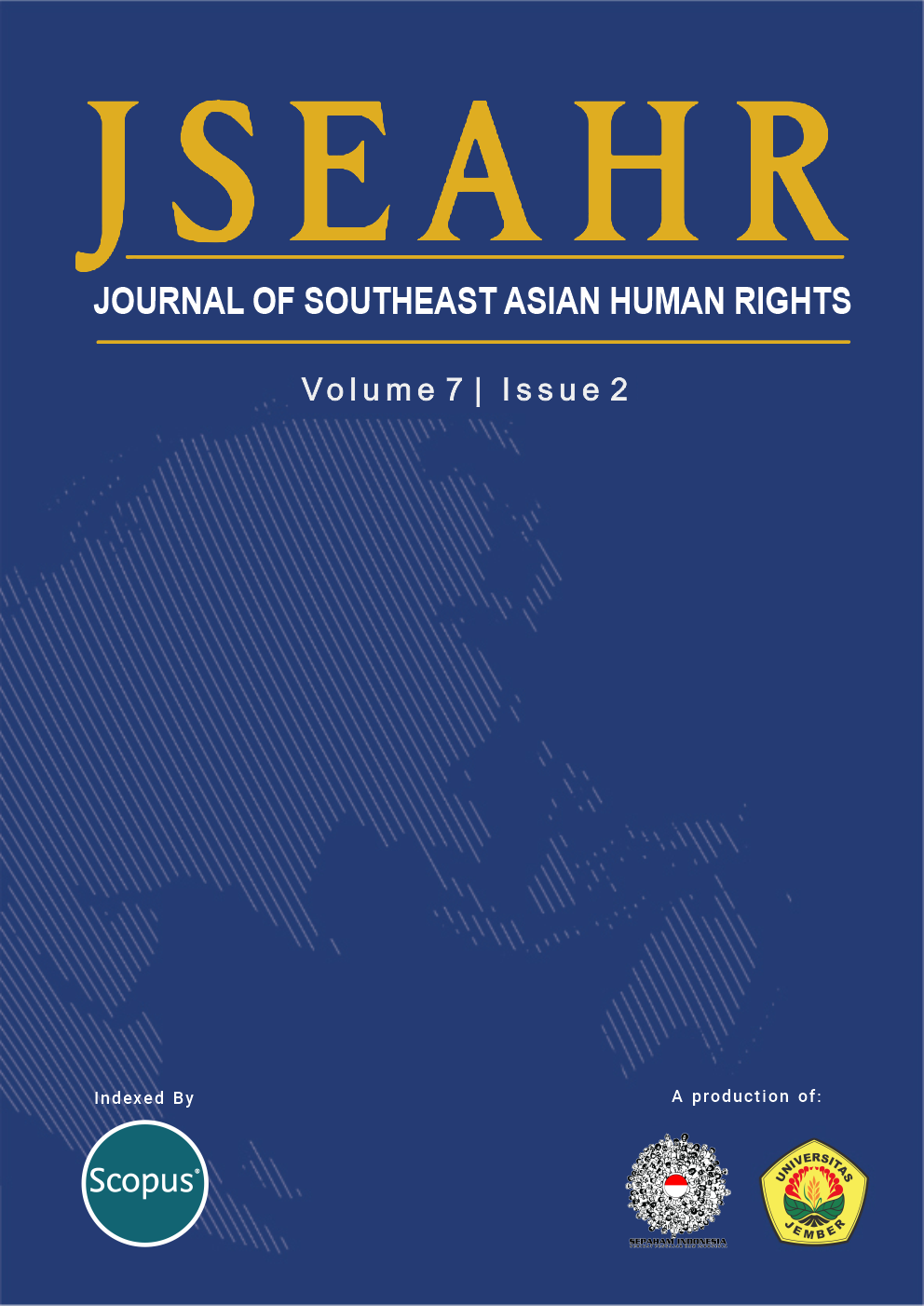Commentary on “Marginalisation and Human Rights in Southeast Asia” by Routledge
Abstract
Human rights and democracy in Southeast Asia continues to attract the attention of scientists in this region to study and examine them in depth. In this context, a centralized and methodical style of authoritarianism, such as that used by Suharto's New Order in Indonesia, has restricted public dialogue of human rights and democracy , and is unlikely to attract the public of Southeast Asia today, according to social scientists, researchers, and Islamic scholars (ulemas). The people of Southeast Asia are tireless champions of human rights, social justice, and democracy to this day. The editors of this book, namely Al Khanif and Khoo Ying Hooi, have put together a book that, in its own way, succinctly and forcefully analyzes marginalization and human rights in Southeast Asia and provides a range of perspectives on the subject. This book covers a wide range of topics, including the success of ASEAN cooperation in ending statelessness, human rights violations committed against migrant workers, the protection of disabled people's rights on a regional scale, the Rohingya refugee crisis, the Moro's plight, religious and ethnic minorities' rights, academic freedom in authoritarian regimes, child abuse, and security concerns in Southeast Asia.
Keywords: Southeast Asia, Human Rights
References
Khanif, Al, Religious Minorities, Islam and the Law: International Human Rights and Islamic Law in Indonesia (London: Routledge, 2021).
Kraft, Herman Joseph, Human rights in Southeast Asia : the search for regional norms, by Herman Joseph Kraft (Washington DC: East West Centre, 2005).
Sahrasad, Herdi, Asia Tenggara, Kuasa dan Kepemimpinan, limited edition ed (Lhokseumawe, Aceh: Freedom Foundation dan Unimal Press, 2019).

This work is licensed under a Creative Commons Attribution-NonCommercial 4.0 International License.







